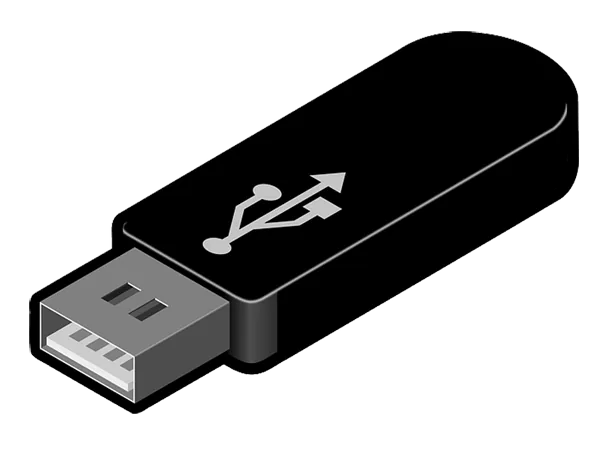NOTE 2: Make sure the HP pen drive inserted in the computer before running the fix. Open the new folder and double-click on Ufix II.exe to run it. NOTE: if Ufix II does not fix the problem, go back and try Ufix III. Let me know if those steps worked for you. If they did, that’s awesome! NOW You can with Ufix Auto Repair Shop!! We provide you the place, tools and knowledge to do it yourself. You can use this space to go into a little more detail about your company.
Warning
SpinalHDL fixed-point support is only partially used/tested, if you find any bugs with it, or you think that some functionality is missing, please create a Github issue. Also, please do not use undocumented features in your code.
Description¶
The UFix and SFix types correspond to a vector of bits that can be used for fixed-point arithmetic.
Declaration¶
Download USB Disk Storage Format Tool for Windows to format any USB flash drive with FAT, FAT32, exFAT, or NTFS partition types. USB Disk Storage Format Tool has had 0 updates within the past 6. Usb Flash Drive Format Tool Ufix-Ii Download 9,4/10 2114 reviews Jan 6, 2018 - HP USB Disk Storage Format Tool, free and safe download. HP USB Disk Storage Format Tool latest version: A Free Formatting Tool For Older.
The syntax to declare a fixed-point number is as follows:
Unsigned Fixed-Point¶
Syntax | bit width | resolution | max | min |
|---|---|---|---|---|
UFix(peak: ExpNumber, resolution: ExpNumber) | peak-resolution | 2^resolution | 2^peak-2^resolution | |
UFix(peak: ExpNumber, width: BitCount) | width | 2^(peak-width) | 2^peak-2^(peak-width) | 0 |
Signed Fixed-Point¶
Syntax | bit width | resolution | max | min |
|---|---|---|---|---|
SFix(peak: ExpNumber, resolution: ExpNumber) | peak-resolution+1 | 2^resolution | 2^peak-2^resolution | -(2^peak) |
SFix(peak: ExpNumber, width: BitCount) | width | 2^(peak-width-1) | 2^peak-2^(peak-width-1) | -(2^peak) |
Format¶
The chosen format follows the usual way of defining fixed-point number format using Q notation. More information can be found on the Wikipedia page about the Q number format.
For example Q8.2 will mean a fixed-point number of 8+2 bits, where 8 bits are used for the natural part and 2 bits for the fractional part.If the fixed-point number is signed, one more bit is used for the sign.
The resolution is defined as being the smallest power of two that can be represented in this number.
Note
To make representing power-of-two numbers less error prone, there is a numeric type in spinal.core called ExpNumber, which is used for the fixed-point type constructors.A convenience wrapper exists for this type, in the form of the exp function (used in the code samples on this page).
Examples¶
Assignments¶
Valid Assignments¶
An assignment to a fixed-point value is valid when there is no bit loss. Any bit loss will result in an error.
If the source fixed-point value is too big, the .truncated function will allow you to resize the source number to match the destination size.
Example¶
From a Scala constant¶
Scala BigInt or Double types can be used as constants when assigning to UFix or SFix signals.
Example¶
Raw value¶
The integer representation of the fixed-point number can be read or written by using the raw property.
Example¶
Operators¶
The following operators are available for the UFix type:
Arithmetic¶

Operator | Description | Returned resolution | Returned amplitude |
|---|---|---|---|
x + y | Addition | Min(x.resolution, y.resolution) | Max(x.amplitude, y.amplitude) |
x - y | Subtraction | Min(x.resolution, y.resolution) | Max(x.amplitude, y.amplitude) |
x * y | Multiplication | x.resolution * y.resolution) | x.amplitude * y.amplitude Hacktool win32 keygen false positive. |
x >> y | Arithmetic shift right, y : Int | x.amplitude >> y | x.resolution >> y |
x << y | Arithmetic shift left, y : Int | x.amplitude << y | x.resolution << y |
x >>| y | Arithmetic shift right, y : Int | x.amplitude >> y | x.resolution |
x <<| y | Arithmetic shift left, y : Int | x.amplitude << y | x.resolution |
Comparison¶
Operator | Description | Return type |
|---|---|---|
x y | Equality | Bool |
x =/= y | Inequality | Bool |
x > y | Greater than | Bool |
x >= y | Greater than or equal | Bool |
x > y | Less than | Bool |
x >= y | Less than or equal | Bool |
Type cast¶

Operator | Description | Return |
|---|---|---|
x.asBits | Binary cast to Bits | Bits(w(x) bits) |
x.asUInt | Binary cast to UInt | UInt(w(x) bits) |
x.asSInt | Binary cast to SInt | SInt(w(x) bits) |
x.asBools | Cast into a array of Bool | Vec(Bool,width(x)) |
x.toUInt | Return the corresponding UInt (with truncation) | UInt |
x.toSInt | Return the corresponding SInt (with truncation) | SInt |
x.toUFix | Return the corresponding UFix | UFix |
x.toSFix | Return the corresponding SFix | SFix |
Misc¶
Ufix 2
Name | Return | Description |
|---|---|---|
x.maxValue | Return the maximum value storable | Double |
x.minValue | Return the minimum value storable | Double |
x.resolution | x.amplitude * y.amplitude | Double |